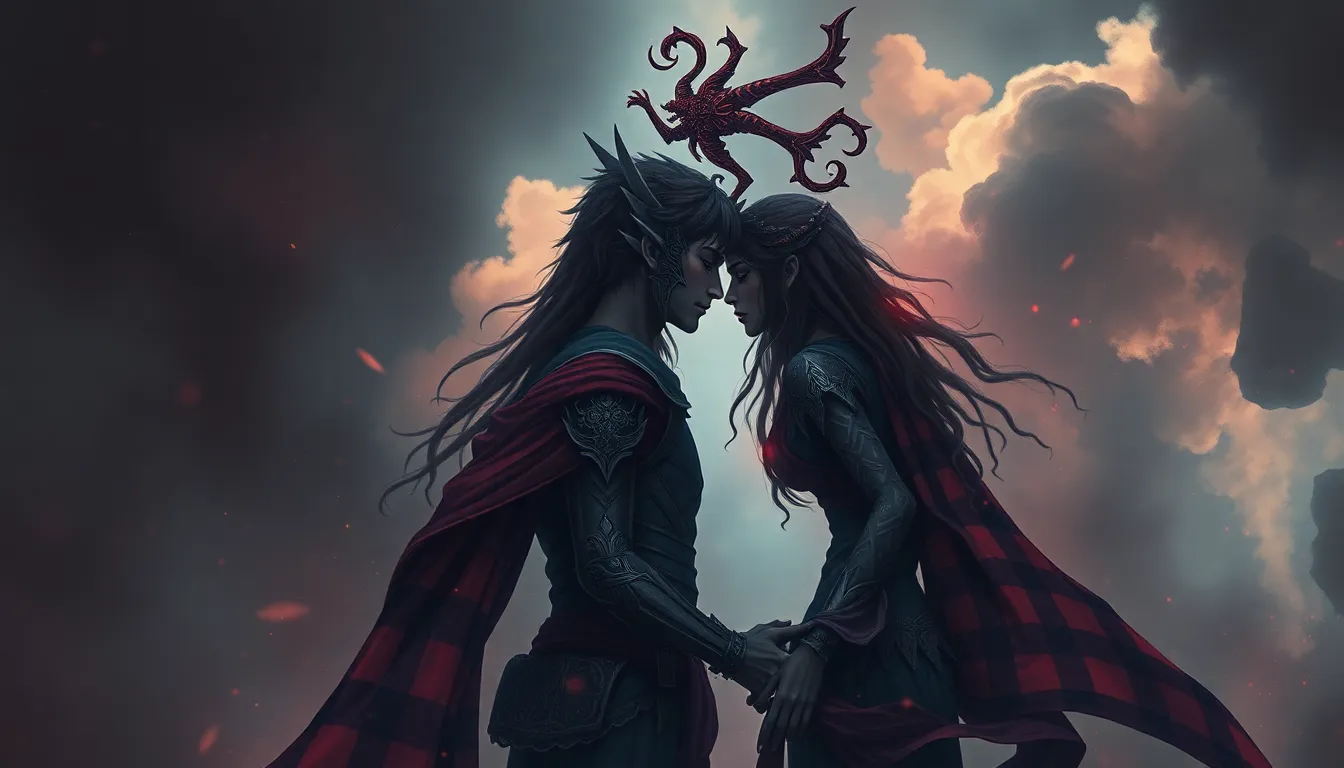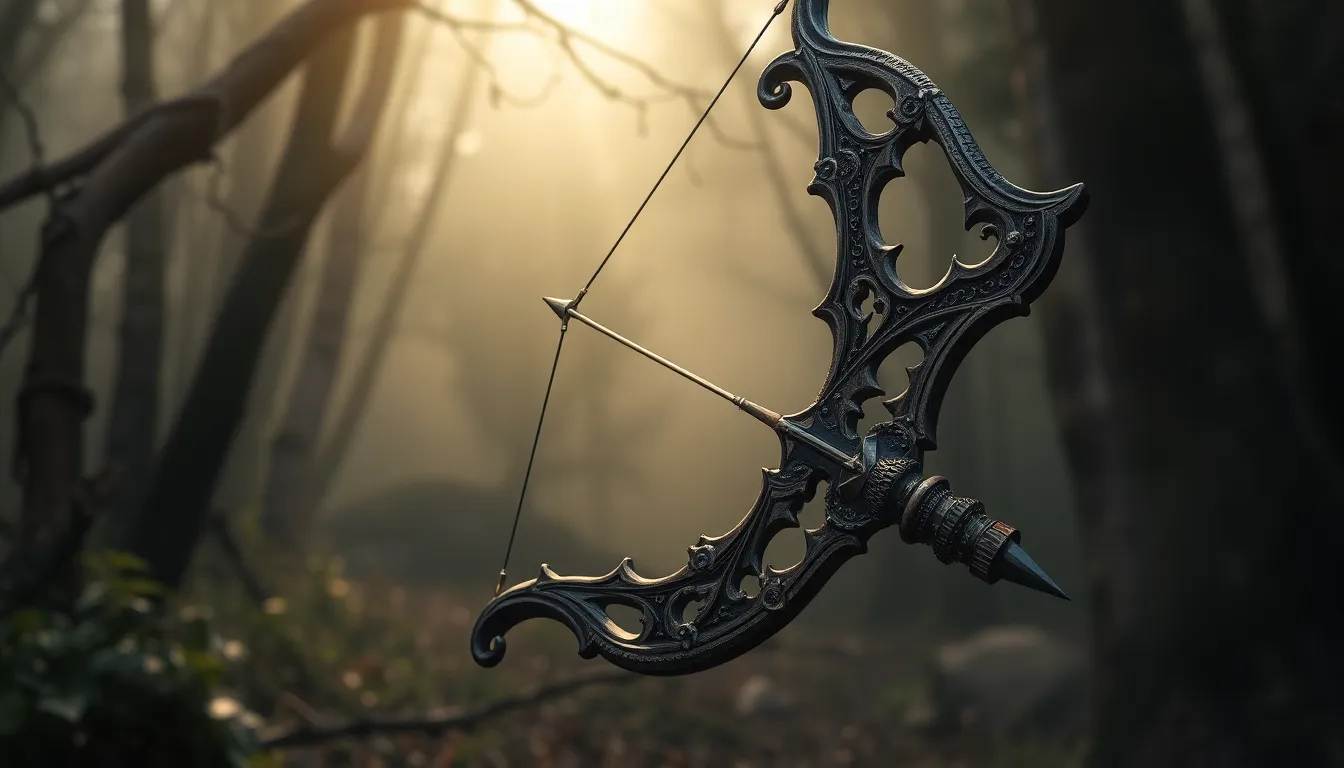The Ties That Bind: Exploring Loyalty in Mythical Love Stories
I. Introduction
Loyalty, particularly in the realm of love stories, refers to the unwavering commitment and faithfulness one partner shows towards another, often in the face of adversity. It is a cornerstone of many narratives, shaping characters and their relationships in profound ways.
The importance of loyalty in mythology and literature cannot be overstated. It serves not only as a narrative device but also as a reflection of societal values and human emotions. Myths often use loyalty as a theme to explore the complexities of love, sacrifice, and the trials faced by lovers.
This article will delve into the concept of loyalty in mythical narratives, examine iconic love stories that embody this theme, and explore how loyalty is tested and evolves in contemporary adaptations. We will also consider psychological perspectives on loyalty and predict its future in love narratives.
II. The Concept of Loyalty in Mythical Narratives
A. Historical perspective on loyalty in myths
Throughout history, myths have illustrated the significance of loyalty, often portraying it as a noble virtue. From ancient Greek tales to Norse sagas, loyalty has been a recurring theme, showcasing the deep bonds between lovers, friends, and family.
B. Cultural variations in the interpretation of loyalty
Loyalty varies across cultures, influencing how love stories are told. For instance:
- In Greek mythology, loyalty is often tied to fate and divine intervention.
- Norse legends emphasize loyalty to kin and honor in battle.
- Indian epics highlight loyalty as a duty (dharma) that transcends personal desires.
C. The role of loyalty in shaping character dynamics
Loyalty can serve as a catalyst for character development, driving motivations and conflicts. Characters who embody loyalty often face tests that reveal their true nature, illustrating the complexities of human relationships.
III. Iconic Mythical Love Stories and Their Lessons on Loyalty
A. Orpheus and Eurydice: A Journey Beyond Death
The tale of Orpheus and Eurydice poignantly illustrates loyalty through Orpheus’s determination to retrieve his beloved from the underworld. His unwavering love leads him to challenge the very forces of fate, representing the extreme lengths to which one might go for loyalty.
B. Pygmalion and Galatea: The Loyalty of Creation
Pygmalion’s loyalty is manifest in his devotion to a statue he created, which he wished to bring to life. This story embodies the theme of loyalty not only in love but also in artistic creation, suggesting that loyalty can inspire transformation and fulfillment.
C. Tristan and Isolde: The Tragedy of Love and Betrayal
The tragic love of Tristan and Isolde showcases loyalty amidst betrayal. Their love, bound by loyalty yet complicated by external forces, highlights the painful consequences when loyalty conflicts with duty and honor.
IV. Loyalty and Sacrifice: A Common Theme
A. The interplay of loyalty and sacrifice in love stories
Loyalty often demands sacrifice in mythical narratives. Characters frequently face dilemmas where they must choose between personal happiness and the greater good.
B. Examples from different mythologies (e.g., Greek, Norse, Indian)
- In Greek mythology, Penelope’s loyalty to Odysseus prompts her to wait for years against all odds.
- Norse tales often depict warriors sacrificing themselves for their comrades.
- In the Mahabharata, Draupadi’s loyalty to her husbands results in immense trials and tribulations.
C. Analyzing the consequences of loyalty and sacrifice
These sacrifices often lead to tragic outcomes or profound transformation, underscoring the dual nature of loyalty as both a virtue and a potential source of suffering.
V. The Role of Fate and Destiny in Loyalty
A. How fate influences loyalty in mythical love stories
Fate plays a significant role in determining the course of loyalty in many love stories. Characters often grapple with predestined paths that test their loyalty to one another.
B. Case studies: Romeo and Juliet as a modern myth
The story of Romeo and Juliet exemplifies how fate intertwines with loyalty. Their love, doomed from the start, raises questions about whether loyalty can overcome the forces of destiny.
C. The paradox of choice vs. destiny in love
The tension between free will and fate creates compelling narratives, as characters navigate their loyalty while facing inevitable outcomes.
VI. Loyalty Tested: Challenges and Trials
A. Common obstacles faced by loyal lovers in myths
Mythical lovers often encounter numerous challenges:
- External forces, such as gods or societal norms, that threaten their union.
- Personal conflicts that test their commitment to one another.
- Physical separations or transformations that challenge their loyalty.
B. The role of external forces (gods, fate, societal norms)
External influences often complicate the narrative of loyalty. Gods in mythology frequently intervene, altering destinies and testing the loyalty of characters.
C. Examples of loyalty being tested (e.g., Odysseus and Penelope)
The enduring loyalty between Odysseus and Penelope is perhaps one of the most famous examples. Despite years of separation and temptation, Penelope’s faithfulness remains unyielding.
VII. The Evolution of Loyalty in Contemporary Adaptations
A. How modern retellings reinterpret loyalty
Contemporary adaptations of mythical love stories often reinterpret loyalty to reflect modern values, incorporating themes of autonomy and personal fulfillment.
B. The impact of cultural shifts on loyalty narratives
Cultural shifts have reshaped the portrayal of loyalty, allowing for more nuanced and diverse representations of love and fidelity.
C. Case studies of adaptations in film and literature
Films like “The Shape of Water” and literature such as “The Song of Achilles” showcase how loyalty is reimagined in the context of contemporary societal issues.
VIII. Psychological Perspectives on Loyalty in Love
A. The psychological basis of loyalty in relationships
Psychologically, loyalty plays a crucial role in forming secure attachments and emotional bonds. It fosters trust and stability, essential ingredients for lasting relationships.
B. How loyalty impacts emotional bonds and attachment
Loyalty enhances emotional connections, reinforcing the idea that partners can rely on one another through trials and tribulations.
C. Lessons from mythology applied to modern relationships
Mythical narratives provide valuable insights into loyalty’s complexities, reminding us of the importance of commitment and the challenges it may entail.
IX. The Future of Loyalty in Love Stories
A. Emerging themes in contemporary love myths
As society evolves, so do the themes of love and loyalty in stories. Emerging narratives often explore the fluidity of relationships and the complexities of love in a diverse world.
B. Predictions on how loyalty will be portrayed in future narratives
Future narratives may increasingly highlight loyalty in non-traditional relationships, emphasizing emotional fidelity over conventional norms.
C. The enduring relevance of loyalty in storytelling
Despite changes in societal attitudes, the theme of loyalty remains timeless, resonating with audiences across cultures and generations.
X. Conclusion
This exploration of loyalty in mythical love stories reveals its multifaceted nature, from the trials faced by iconic couples to the psychological underpinnings that sustain these bonds. Loyalty continues to shape narratives, reflecting human experiences and societal values. As we move forward, the significance of loyalty in love will remain a central theme in storytelling, connecting us to our past while guiding our understanding of relationships in the present and future.




